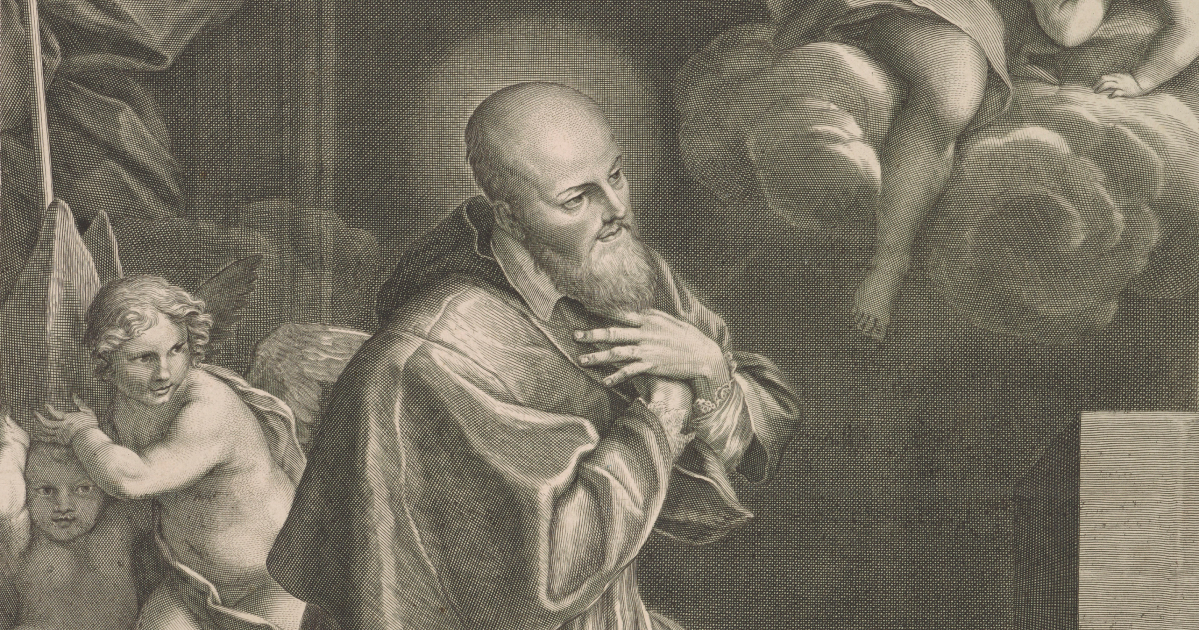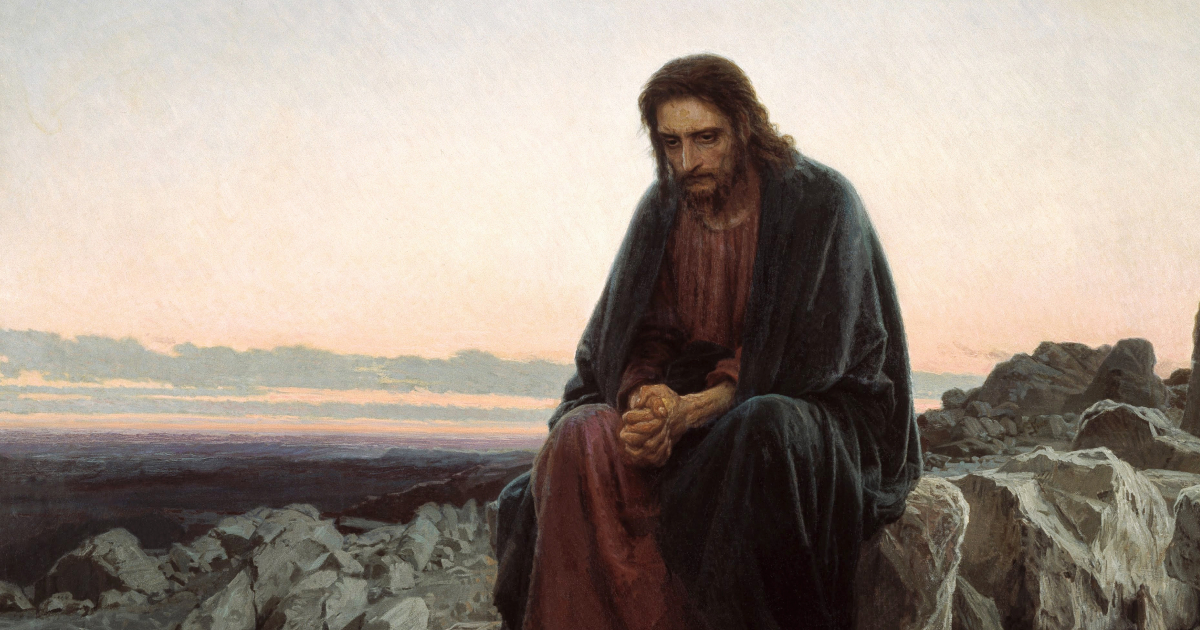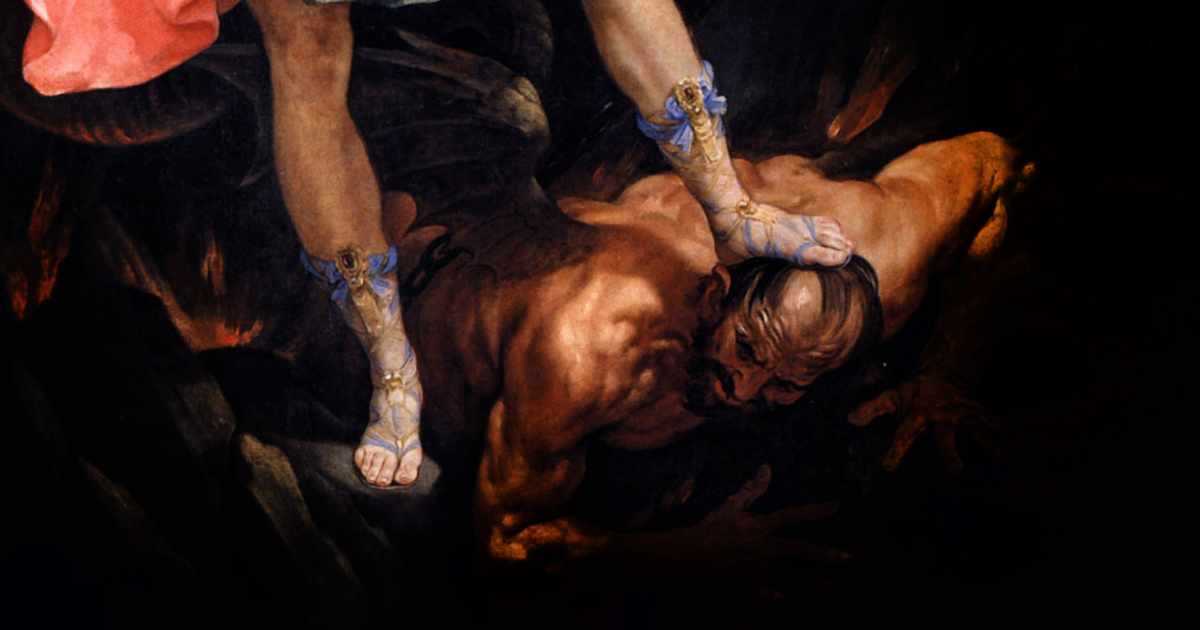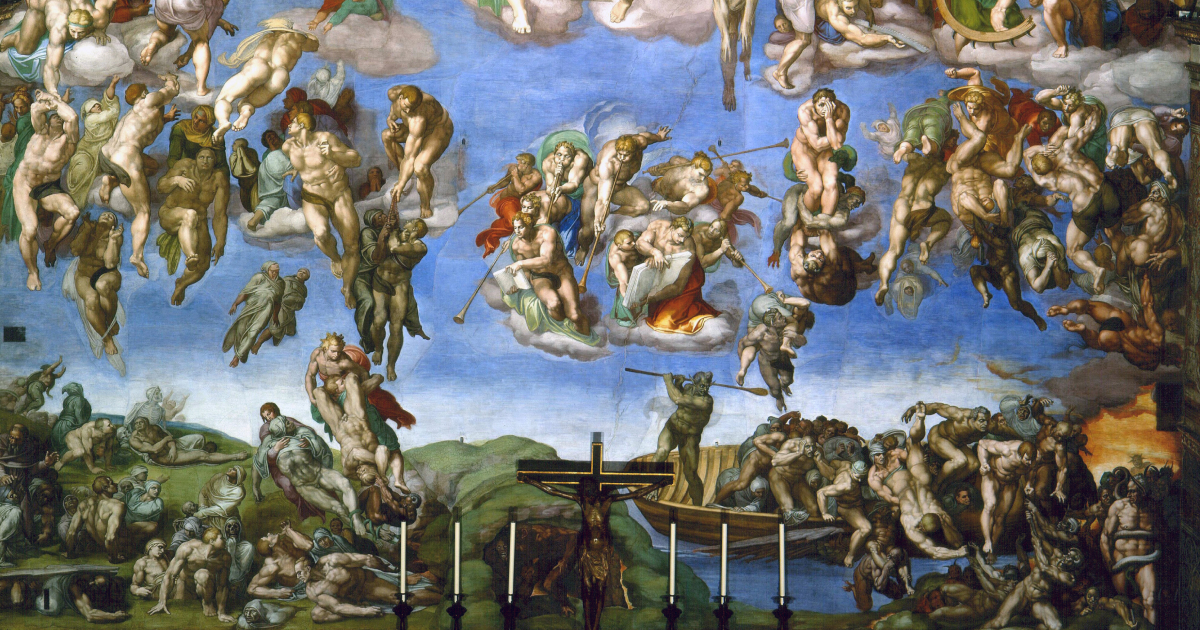Ideas are not toys. They have the power to put things into motion and affect reality.
As Genesis, the Prologue of John, and Aristotelian-Thomistic metaphysics tell us, the Word, the idea, the immaterial, is first conceived and only thereafter becomes material reality. This is the order of creation.
A carpenter dreams up a design for an elaborate chair before he carves the blocks of wood to make it so. J. K. Rowling conceived Harry and Hogwarts in her mind and consciousness long before a young Daniel Radcliffe was transformed into a scarred adolescent protagonist or the familiar settings were made into tourist attractions and figurines.
The architect submits his plans before the builders move his ideas onto a stone plain on your street.
Ideas are powerful forces, for good and for ill. The ideas of Marx, in the hands of Bolshevik agitators in 1910s Russia, were the transformative spirit which led to the USSR. Ideas can topple governments, save lives, ruin lives.
The right ideas, concordant with reality, lead to goodness and truth, and can help the people who adopt them to thrive. The wrong ones lead us—either quickly or slowly—to the abyss.
So when I learned this week that among the youngest generation to come of age—the so-called Generation Z of 18–28 year olds—belief in God is returning at a remarkable rate, I was not too surprised, even if I am a little taken aback at the speed of it. I understand the phenomenon of young people across the Western world returning to a religious belief their recent forebears flagrantly disregarded.
It demands consideration. For the ideas adopted by the generation soon to assume positions of leadership will inevitably shape what is to come.
According to the latest YouGov figures, between 2021 and 2025 belief in God among British youth skyrocketed, almost trebling from 18 per cent to 48 per cent. I myself was among their number. Received into the Catholic Church in March 2021, a few weeks before the Easter Vigil, I had started attending Mass two years prior while studying abroad in Oslo.
I cannot speak for all religiously minded young people. But I can speak for some. Many of my friends are also converts. We talk much. I know their backgrounds, their stories, their loves, their grievances.
The reason for this revival can be broken into push factors—the conditions which gave the young an impulse to look elsewhere than the contemporary godless orthodoxy they were fed—and pull factors, why specifically this is leading many to God.
I will begin with the push factors.
From the first postwar generation, the Baby Boomers, through Gen X to Millennials, Western children were largely educated, ruled and raised by adults who had progressively abandoned real belief in the Christian God and strict religious observance. Alongside this was frequently a naïve insistence that their doing so would usher in a utopia of heightened rationality, free from “downer” superstition and cruelty. I believe Gen Z are the first to realise what has resulted is in fact the opposite.
All our recent forebears have instead achieved widespread family dysfunction, divorce, slavery to sexual appetite, corruption in society, and the rapid undoing of one of the most incredible 2,000-year civilisational inheritances.
They notice that our corner of mankind no longer builds Venice, it builds ugly metropolises. No more do we make or celebrate Caravaggios, Van Eycks, Rembrandts, Canalettos, Michelangelos, Berninis, or Vivaldis. We have the likes of Bob Vylan and Iggy Azalea with her “OnlyFans”. The contrast has become stark.
And as Gen Z are to live through a world where negative birth rates mean their nations will be driven to the precipice within a century, they sense the errors of their forebears tangibly.
A recurrent theme here is ideas. Ideas are like seeds which flower into either a poisonous weed or a fruitful tree which produces life. Jesus Christ was onto something with the parable of the sower. Oftentimes ideas take a long time to germinate, grow and flower. It may take multiple generations. The ideas of the Reformation rapidly fractured Christendom, but the ideas of the Enlightenment took longer to secularise Europe.
After World War II, the ideas of postmodern philosophy, 1960s popular culture and social liberalism combined to transform Western societies. At first their changes correlated with a modicum of material prosperity. But, over time, the fruit has manifested: nihilism, an inability to answer basic questions surrounding gender, sex and the purpose of life, and crude materialistic politics amid dire societal crisis.
In a world where the very foundations—marriage, families, elementary truths such as what a woman is—are no longer secure, and where Gen Z were raised in a liberal vacuum where no values or creeds except tolerance exist, they have sought a path away from the precipice elsewhere.
They no longer value the “all you need is love” hippy idealism of the 1960s and 70s. They no longer see liberalism and democracy as infallible deities, for they are conscious of their failures. And all the condescending, sophisticated, received pronunciation tones of the New Atheists in the world are not enough to persuade them that disregarding God is a sensible path to truth.
That is the push. What is the pull? Some have expressed incredulity and mused about the potential inaccuracy of the YouGov poll. How much of this is accounted for by immigration? How deep does this mere ill-defined “belief in God” go? These are legitimate questions.
But the statistics elsewhere also reveal that a change—or the start of one—is taking place. Adult baptisms and conversions to the Catholic faith are rising in Britain, France and the US. The Latin Mass is booming in popularity among the young, many of whom were raised in irreligious homes.
What draws them? A compendium of factors. First, information and accessibility to religion are improved by the internet. Second, the ideas of Catholicism, traditional Christianity and the concept of a monotheistic God, presented without ridicule or caricature by hostile gatekeepers, are far more compelling than prior generations were led to believe.
One can now find the most informed and sophisticated religious apologetics, informed by centuries of advanced theology, in a YouTube video. What medieval monastics only dreamed of having, we now enjoy with ease.
While traditional Christian metaphysics, philosophy and theology have been largely excised from secular curriculums and treated with mockery in Hollywood, TV, music and popular culture, I do not believe it a coincidence that the first generation since the War raised without dependence on radio, television and legacy newspapers for their information—where ideas were more easily gatekept—are finding their way back to truths once artificially excluded.
Then there is the simple quality of the idea and reality itself. Those who live without God find their own efforts frustrated. Statistics show they are less happy. Their families and relationships are more likely to fail. Their art is vulgar.
Meanwhile, observant Christian families often shine as a beacon of light amidst the darkness. If there were a God who offered vital grace, lingering behind the veil of the cosmos, this is exactly what we would expect to see.
Jesus Christ’s teachings help one to lead a better life. Forgiveness and abandoning grudges make one happier. Fasting, prayer and loving others bring blessings in manifold ways. Liturgy, contemplation and mystery activate the consciousness more profoundly than the sedative effects of screens, sex and drugs.
What it counters is found lacking. Materialism—the quiet assumption that all that exists is physical matter—is a laughable absurdity and an impoverished belief of the lowest quality. Consciousness cannot be explained by materialism. Neither can mathematics. Neither can universals. Neither can the question of why there is something rather than nothing. Yet, until recently, it was a popularly held belief in the West.
How long could such a position hold without Hollywood and secular journalists to prop it up?
Do not underestimate the power of ideas. For Gen Z, the old gods are dead, and the old God has returned. The future looks very different indeed.





.png)











